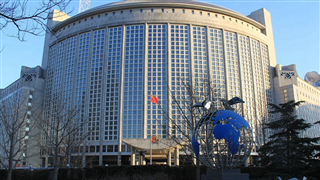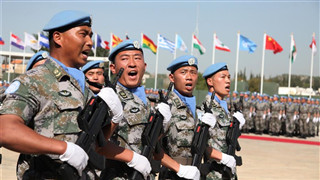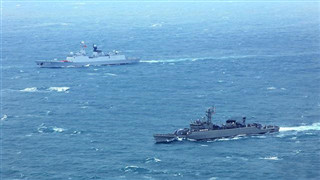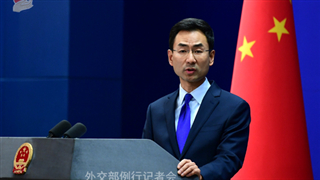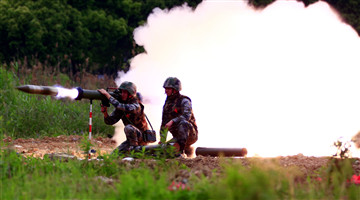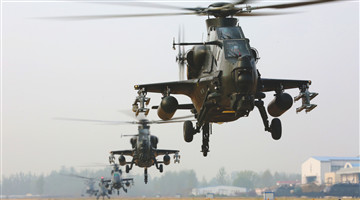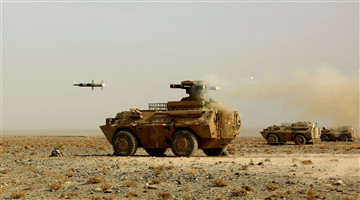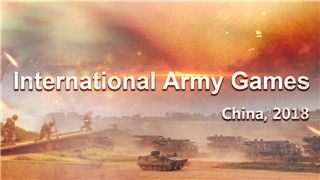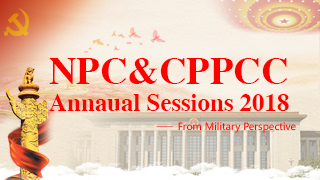
By Liu Shiqi
The situation in Libya has once again become chaotic recently. The Libyan National Army (LNA), a military force in the east of the country, advanced on the capital Tripoli on April 4 and had heavy fighting against the Armed Forces of the Government of National Accord (GNA). This round of conflict has deteriorated the situation in Libya, and it is inseparable from the competition and game of external forces.
As a matter of fact, the seeds of conflict and turmoil in Libya were planted as early as eight years ago. In 2011, the Arab Spring swept across the Middle East and North Africa, and as a result, Libya’s Gaddafi regime was overthrown by Western-backed opposition forces. Since then, Libya has been a country with two rival administrations and parliaments. Many militia groups emerged within its border and the country is falling apart. The two confronting sides in this resumed fighting are backed by different external forces, while each has their own agenda.
Khalifa Haftar, who controls Libyan’s eastern part, has extensive external support. Saudi Arabia’s King and Crown Prince met with Haftar in Riyadh before the LNA advanced on Tripoli. According to the Wall Street Journal, Haftar received Saudi Arabia’s “very generous” funding during his visit to the country, and used it as a financial support for his military offensive. The United Arab Emirates (UAE) sees Libya as a fortress against Islamists. As an important ally of Haftar, UAE invests heavily and provides air support for LNA. Egypt also has close ties with Haftar as Egypt has a focus on maintaining security and stability along its border with Libya, fostering friendly bilateral relations and curbing the influence of the Muslim Brotherhood in the region. Therefore, Egypt has also provided military and diplomatic support to Haftar.
In addition to the Gulf countries, France and Russia have close relations with Haftar too. France sees Haftar as the key to stabilizing the situation in Libya, alleviating the influx of refugees into Europe and securing French oil interests in eastern Libya. Russia is interested in expanding its cooperation with Haftar in such areas as arms sales and oil and gas, and enhancing Russia’s influence in the Mediterranean coast. Previously, Haftar also visited Russia three times to seek political support.
The Libyan Government of National Accord (GNA), which confronts the LNA, occupies the capital city Tripoli and controls the western part of Libya. The GNA is supported by the US, Italy, Turkey, Qatar and other countries. Turkey and Qatar have been siding with the GNA and providing military and financial support in support of the Islamic regime. Italy once worked well with the GNA in controlling immigration and developing oil and gas resources in western Libya. Therefore, Italy also hopes to stabilize the situation in Libya by supporting the GNA and thus curb the refugee crisis. However, Italy and France have conflicts on the Libyan crisis, blaming each other for the crisis. This shows that the EU’s position on Libya is not unified.
For its own sake, the US does not make a clear distinction between the two sides in the conflict. During the conflict, the US Africa Command (AFRICOM) ordered the withdrawal of its combat troops in Libya, making “US support for the GNA” a controversial question. At the same time, the US is also supporting the LNA in order to combat the power of the Islamic State (IS) and ensure the security of Libya’s oil reserves. For example, US President Donald Trump and Haftar spoke by phone on April 7 after the US announced the temporary withdrawal of some of its troops stationed in Libya. Trump endorsed Haftar’s efforts to fight terrorism and this shows that the US has been swaying from side to side in Libya.
It should be pointed out that the military offensive by Haftar, with the intervention of external forces, will further worsen the situation in Libya and the region. On the one hand, the conflict will lead to massive civilian casualties and greater displacement of the population. The World Health Organization said on May 2 that since the two sides engaged in the war in Tripoli, 392 people have been killed and more than 1,900 people have been injured. On the other hand, the chaotic situation in Libya has left a large security vacuum for extremist forces. The IS has taken this opportunity to cultivate power and grow stronger in the territory of Libya, once occupying the city of Sirte in the Mediterranean coast of northern Libya. At present, the IS has launched terrorist attacks in the Middle East, Africa and Europe in addition to the terrorist attacks in Libya.
The resumption of war in Libya has once again proved that the strong interference of the West under the banner of “democracy” has not brought prosperity and development to the country. The Western “template for democracy” has not been proved helpful in Libya, and instead, it brought damage to the original political and social ecology in Libya. In the long run, it is difficult for Libya to usher in real peace under the intervention of external forces. The Libyan issue can only be resolved peacefully through political dialogue and negotiations. There is no way out when resorting to military means.
